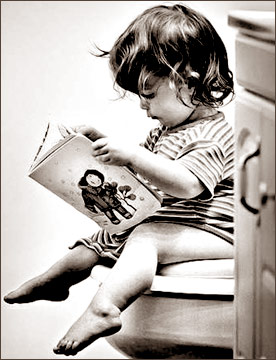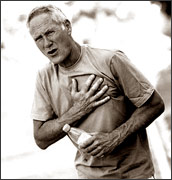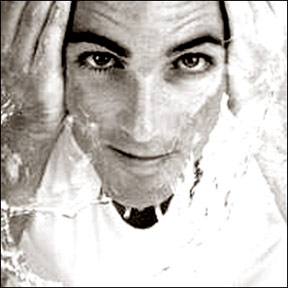
“Uh-oh! I wet my bed”
“Uh-oh! I wet my bed” may be a common thing to hear in households
with young children. But at what point do nights of wet sheets become
too many, and how can you tell if your child’s bedwetting problem is a
normal part of growing up or a medical problem they may need some help
with?
 In toilet-trained children who have full bladder control, the bladder
retains less urine during sleeping hours so that the child can sleep
through the night without wetting the bed. But in some children, their
bodies have not matured and their urine production does not slow down at
night, causing their bladder to overfill - and that’s why they wet the
bed. In toilet-trained children who have full bladder control, the bladder
retains less urine during sleeping hours so that the child can sleep
through the night without wetting the bed. But in some children, their
bodies have not matured and their urine production does not slow down at
night, causing their bladder to overfill - and that’s why they wet the
bed.
Bedwetting is common and normal in children under the age of 5. But
by the time children reach 5 or 6 years of age, bedwetting is something
they should have outgrown - and if they haven’t, it’s no longer just
considered an annoying part of growing up. It’s considered a medical
problem. About 15-20% of 5-year-olds are affected by bedwetting.
Bedwetting is a common problem, but it’s still a medical condition
that your child and your family shouldn’t have to put up with. And it’s
a problem that is twice as common in boys as in girls.
But what’s considered normal, and what merits treatment? Wet sheets
may just be something you have to put up with as the result of an
occasional accident, but if your child wets the bed more than twice per
month, it’s considered a problem.
As well, if your child starts to wet the bed after a long period of
dry nights or if they experience painful or pink urination, unusual
thirst, or snoring, it could be a sign of a medical problem that goes
beyond bedwetting.
Although bedwetting itself is a medical problem, most children who
wet the bed are otherwise healthy. But if your child wets the bed after
age 5 or 6, you should always talk to their doctor.
The doctor can rule out any additional, possibly serious, medical
causes that are contributing to the problem, as well as work with you to
help you decide what tools you will choose to reduce the impact of
bedwetting on your child’s - and your whole family’s - life.
Bedwetting’s toll on your child
Bedwetting is a medical problem beyond your child’s physical control,
and it can take a huge emotional toll. Imagine how you would feel if you
had a problem you couldn’t control that caused you to do something
embarrassing on a regular basis. Over time, this problem would likely
make you feel ashamed and out of control - much the way a bedwetter
does.
Childhood is supposed to be a carefree, happy-go-lucky time. And as a
parent, you want your children to feel good about themselves and to
believe they can accomplish anything they set their mind to. But being a
bedwetter can make childhood less than perfect.
One study indicates that bedwetters rate this problem as extremely
important in their lives. Only parental fights and divorce were rated
higher in terms of significance to a bedwetting child.
Whether or not your child understands why they wet the bed, it’s a
problem that they are likely ashamed of. After all, to hear their peers
and siblings talk, wetting the bed is something babies do. And that is
not a positive message for your child’s self confidence.
Because bedwetting is so often accompanied by emotional problems such
as low self-esteem or acting out, many mistakenly believe that these
psychological problems are the cause of bedwetting, rather than the
result.
Over time, the feelings of shame and embarrassment from bedwetting
can result in a slew of problems that affect how your child feels about
themself, how they interact with their peers, and even how they perform
in school.
For example, psychologists who have examined children with chronic
bedwetting problems have found that these children rate themselves as
being less competent in school and sports, less physically attractive,
and less accepted socially. These effects may get worse the older the
bedwetting child is. Children who wet the bed have also been shown to be
more likely to have behaviour problems, such as aggressive behaviour and
attention problems.
Trying to keep this embarrassment a secret may also mean missing out
on some childhood rites of passage - things like sleep-over parties and
overnight stays at a camp or even having friends over (to avoid being
given away by the telltale odour in their bedroom), again making your
child feel “different” from everyone else and reducing their
opportunities to bond with their peers. Combined, these factors can
isolate your child from their peers and put them at risk for bullying
and teasing.
Having to deal with the constant fear of being discovered as a
bedwetter is a great burden for any child. They feel they are different
from their friends; they are the only one who wets the bed. A wish many
bedwetters have is to wake up with a dry bed in the morning and not have
to wear a diaper to do so.
In order to deal with all the pressures that come with bedwetting,
many children try to cope with the problem in their own way. One way is
to pretend that bedwetting does not bother them.
So when asked, many bedwetters will tell their parents and doctor
that bedwetting does not bother them. It is not until the child feels
comfortable with the question and can trust that no harm will come to
them will they start to discuss their bedwetting problems and fears.
And then there’s the toll from lost sleep. Children need sleep for
their bodies to develop properly, to learn effectively, and to stay
healthy. In studies where elementary-school-aged children had the number
of hours they slept reduced, their teachers reported more learning
problems, including difficulties remembering older material, learning
new lessons, and completing their work.
When you consider the amount of time it takes to clean up from
bedwetting - from changing the sheets and putting on new pajamas to
calming an upset child - it’s more than likely bedwetting is keeping
your child from getting the zzz’s they need.
So the question is, if your child wets the bed, how do you minimize
the impact?
The first step is making them understand that it’s not their fault -
and making them aware that you know it’s not their fault. You can do
this by explaining what causes bedwetting and by telling your child
about your experiences if you were a bedwetter too. They need your
support and positive reinforcement.
Punishing or reprimanding a child for wetting the bed can only make
your child’s feelings of shame worse. Because your child probably only
gets punished in other situations when they intentionally break the
rules, this can reinforce the message that your child is doing something
wrong.
But studies have shown that just the act of treating bedwetting -
regardless of the outcome - can improve your child’s feelings about
themself as well as their behaviour. Your child’s doctor can help you to
find a treatment in order to prevent the physical problem of bedwetting
from becoming an emotional one as well.
Psychological issues, chest pain or cardiac neurosis
Dr. R. A. R. Perera,
Consultant Clinical Psychologist,
 Chest pain on cardiac neurosis is characterised by anxiety, which is
severe enough to make most people fear they will die suddenly from a
heart attack. They complain of pain in the left side of the chest,
breathlessness, palpitations, tiredness, dizziness, and rarely fainting
attacks. 10-15% of all patients referred to cardiac department for chest
pain is due to cardiac neurosis. It occurs more often in women than in
men (3:2). There is usually a family history of anxiety prone parents or
children. Chest pain on cardiac neurosis is characterised by anxiety, which is
severe enough to make most people fear they will die suddenly from a
heart attack. They complain of pain in the left side of the chest,
breathlessness, palpitations, tiredness, dizziness, and rarely fainting
attacks. 10-15% of all patients referred to cardiac department for chest
pain is due to cardiac neurosis. It occurs more often in women than in
men (3:2). There is usually a family history of anxiety prone parents or
children.
Childhood neurotic characteristics, such as fears of the dark,
animals, heights, nail biting, stammering, nightmares and sleepwalking
are common in these people. They have shy, introspective and dependent
personalities. They usually tend to be neat, tidy and highly
conscientious as adults.
Most of us are familiar with the uncomfortable thudding of our hearts
during moments of fear, and have witnessed a fainting attack provoked by
the sight of something causing extreme apprehension.
The defence reaction, which happens during an emergency or with a
traumatic event, has behavioral and cardiovascular components, appear to
be triggered with relative ease in certain people. The person has an
anxious facies and the pupils may be dilated. He often looks pale and
sits on the edge of the chair and clearly cannot relax. He may grip the
arms with his hands or fidget with a handkerchief or a ring.
The voice may be tremulous and the person frequently clears the
throat. He will have cold clammy hands and he looks drightened and may
be near to tears. They often complain of sleep disturbance and do not
feel refreshed in the morning. These people feel tired and listless and
are worn out by minimal effort. Headache is common, usually vague or
throbbing.
During a typical ‘attack’ the blood pressure is usually increased and
there might be palpitation and loud heart sounds. He may complain left
sided chest pain, which might radiate along the left arm. Breathlessness
may occur in circumstances that would not affect a normal person.
Dizziness or momentary faintness accompanied by ‘light headedness’ may
occur. Sweating of the palms and tremors of the fingers is very common.
In these people there will be decreased sexual activity due to
impotence and with the fear that sexual activity could precipitate a
heart attack. Alcohol, which reduces anxiety and temporary restores
confidence, tends to be abused. References to death or disease in
newspapers or on television cause a further deterioration in confidence.
The diagnosis of a cardiac neurosis is made on positive psychological
grounds, and not merely by exclusion. A physical examination followed by
investigations such as a chest x-ray, ECG, and blood tests are necessary
to allay the patient’s fears of heart disease and to give the doctor
confidence that there is not an underlying physical disorder.
It is not uncommon to have an anxiety state with thyroid disease,
heart disease, or to find that following a heart attack the patient is
preoccupied by his heart and may impose unnecessary physical restriction
upon him.
Unconditional reassurance will be possible if the examination and
investigations have been through. Most patients need to be told that the
mind controls the heart, breathing an sweating, and can produce chest
pain, shaking of the body or even fainting.
Medications, which will reduce anxiety and depression, are useful in
acute conditions. Relaxation training, meditation and exercises are
valuable non-pharmaceutical methods.
Alcohol abuse and excessive use of caffeine (coffee) should be looked
in to, in the management.
Routine medical examination will help to reassure the patient that
his symptoms are being taken seriously, and that his doctor thoroughly
understands his case.
The final out-come is good provided the condition is recognized early
and the correct treatment is instituted. An expression of empathy,
genuineness and warmth from the doctor and the family can be the most
powerful tranquillizer.
Best skin care tips for men
 To many, many men skin care is the last priority on their list.
Shaving their face would be the closet thing to skin care that they
would come too, however times have changed and there are many men that
are taking the steps to better skin care and showing their skin just a
little bit more love and care. Here in this article I will go over the
basic skin care tips for men. To many, many men skin care is the last priority on their list.
Shaving their face would be the closet thing to skin care that they
would come too, however times have changed and there are many men that
are taking the steps to better skin care and showing their skin just a
little bit more love and care. Here in this article I will go over the
basic skin care tips for men.
Taking care of your skin is important and many men have realized that
the skin is the outer most layer to protecting their look for the future
as well as the largest defense organ against outside bacteria and
sickness.
As people age our skin tends to lose the elasticity and wrinkles and
fine line began to appear. Skin care for men does not take out hours
from the day but just a few minutes each day. A simple antibacterial
skin soap and cleanser. Just wash you face with warm water and rinse dry
with cold water.
This is to close the pores after washing.
The daily weather can also pose harm to a mans skin and all mean
should before when going out into the earths elements should be wearing
at least an SPF 15 protective sunscreen before stepping outside. This
can help with preventing wrinkles in the future as well as help the
fight against the potential skin cancer as well.
Eating right will also do wonders for your skin. Some things that you
should and need to stay away from would be foods that are high in
saturated fats things such as fried food, French fries, chips and other
foods with a lot of processed ingredients. By staying away from these
foods you can reduce the level of toxins that can build up your pores
that can cause breakouts.
One of the best ways a many can help his skin as well in the
consumption of water drinking water not only helps your body rejuvenate
but it also helps to keep the skins surface hydrated and moisturized
which is highly important when it comes to skin care.
You should just know that a man’s skin care is just as important as
any one else’s and have to be treated with the up do most respect and
following through with a daily skin care plan is vital to much success
with you and all of your skin care needs. |
